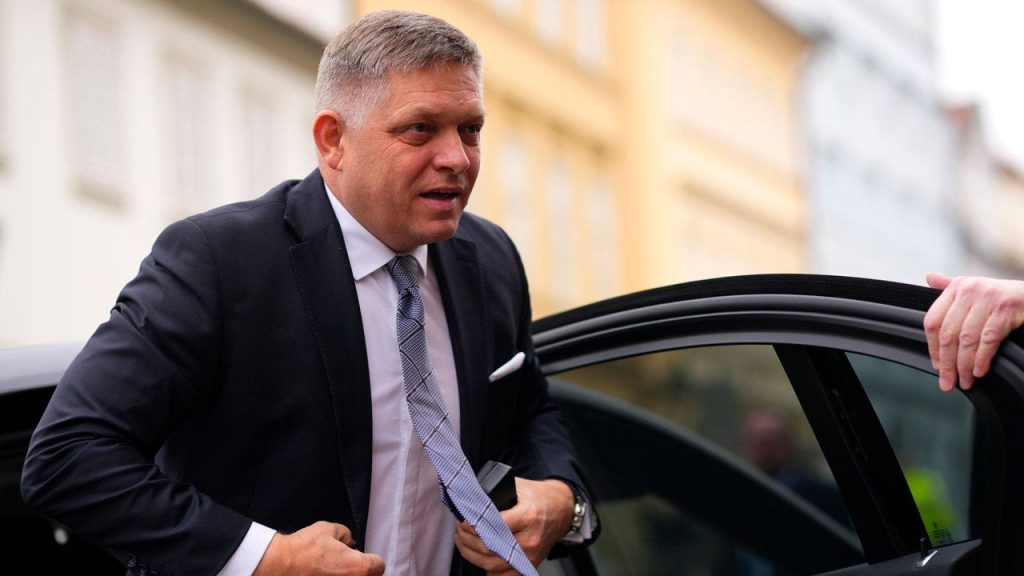Slovakia’s government has approved a controversial overhaul of the country’s public radio and television services, sparking protests and criticism from various groups. Prime Minister Robert Fico claims the changes are necessary due to alleged political bias within the public broadcaster, RTVS. Critics argue that the proposed changes would give the government full control over the media. Thousands of people have rallied in the capital to condemn the plan, while local journalists, opposition parties, international media organizations, and the European Commission have also expressed their disapproval.
The takeover plan was introduced by Culture Minister Martina Šimkovičová, a member of the ultra-nationalist Slovak National Party. She believes the current broadcaster is biased in favor of mainstream views and censors alternative perspectives. Under her proposal, a new organization called Slovak television and radio (STVR) would replace RTVS, with a director chosen by a council comprised of members nominated by the Culture Ministry and Parliament. These changes are expected to be approved by the Parliament, where Fico’s coalition government holds a majority, in June.
Fico, known for his confrontational attitude towards journalists, has labeled several media outlets in the country as his enemies. His leftist Smer party, which won the parliamentary elections on a pro-Russian and anti-American platform, has raised concerns among critics who fear Slovakia might shift away from its pro-Western stance and align with populist leaders like Hungary’s Viktor Orbán. Fico’s government has already made policy decisions such as halting arms deliveries to Ukraine, prompting further discontent and protests across the country against his administration’s actions.
The proposed changes to the public broadcaster and other policy decisions by Fico’s government have sparked widespread opposition and demonstrations in Slovakia. Protesters have rallied against perceived threats to media freedom, anti-corruption efforts, and the country’s alignment with Western values. The controversy surrounding the overhaul of the public media services reflects broader concerns about the erosion of democracy and press freedom in Slovakia under Fico’s tenure.
The government’s efforts to reshape the public broadcasting sector have drawn criticism both domestically and internationally. Critics argue that the proposed changes would consolidate government control over the media and limit freedom of expression in the country. As protests continue and opposition to the government’s policies grows, Slovakia faces a growing challenge in balancing its political direction with the demands of its citizens and international partners. The outcome of this struggle will likely have long-lasting implications for the country’s democratic institutions and its relationship with the European Union and other democratic allies.


